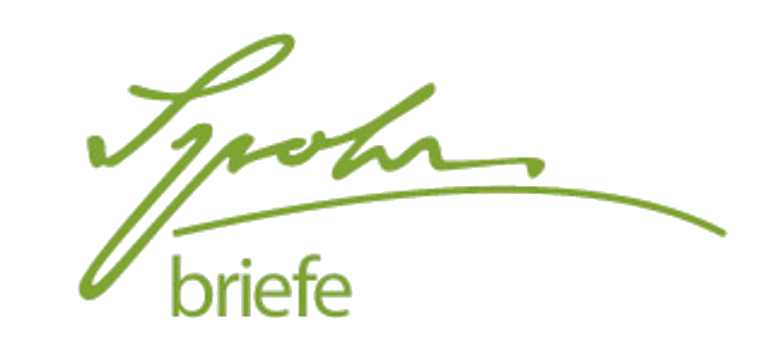1846121134
Edward Taylor an Louis Spohr in Kassel
London, Freitag 11. Dezember 1846
Autograf: Universitätsbibliothek Kassel - Landesbibliothek und Murhardsche Bibliothek der Stadt Kassel (D-Kl), Sign. 4° Ms. Hass. 287[Taylor, E.:47
Druck: Karl Traugott Goldbach, „,... daß die dabei gehaltene Predigt großentheils gegen sein Oratorium gerichtet war'. Zur Rezeption von Des Heilands letzte Stunden in Großbritannien”, in: Die Oratorien Louis Spohrs. Kontext – Text – Musik, Göttingen 2015, S. 307-339, hier S. 328 (teilweise)
Dr. Louis Spohr
Hesse Cassel
Germany
via France
Gresham College_ London.
Dec 11, 1846
My esteemed & honoured Friend
Such portions of your welcome Letter, as related to your hoped-for visit to England, have heen laid before the Committee of the Sacred Harmonic Society, and I am now enabled to give their replies to your questions.
To your fist question they reply,
”The Committee intend having three performances viz. on one either ,“The Fall of Babylon“ or the ”Crucifixion“1 - the second performance to be the ”Last Jugdement,“2 with the addition of some other piece to be thereafter determined on. The third performance to be a repetition of one the preceding“.
To your second question the Committee reply,
”That the termes shall not be less than seventy five Gunieas - and that if the performances shall be attended with such success as to enable them to increase the amount they have named, Dr. Spohr may be assured that the Comittee will gladly do so.“
To your third question the Committee reply,
”The Committee think that a stay of 3 weeks in London will be sufficient for the Rehearsals and Performances: but cirumstances which cannot now be foreseen might possibly render it an advantage to add a few days. In the event of Dr. Spohr‘s accepting the invitation of the Committee, he will have the kindness to inform them of the exact date of his expected arrival in London, in order that they may make their arrangements asending by.“
Such, my dear Sir, are the replies to your questions, and I earnestly hope that they may be so far satisfactory that we may look forward to the joy of seeing you again in London.
With regard to the sum the Comittee propose, you may rely with the most perfect good faith on what they promise contingently. They are men of honour & integrity; having no pecuniary interest in any of the performances of the Society, but amateurs, who spend all they reveice in cultivating that sort of music which the Society was formed in order to promote. This audience is principally compared of persons who subscribe for the Season, & who, of course, have a right to attend (either in person or by proxy) at the performances.
I would add that it would be desirable for you to be here as early as you can. In July the London season terminates, and probably towards the middle of that month we shall have a general Election, for the term of the present Parliament will have expired. When that time comes, adieu to Music – the whole king down is in a ferment. The Elction may come sooner; for when Parliament meets next Month, if Lord John Russel should find himself in a minority, no doubt he will advise the Queen to dissolve Parliament.
I await with great anxiety your kindly-promised Psalm. I have the most perfect confidence that Madame Spohr wil take care that your music shall be fitly ”married to th‘immortal Verse“3 of musical attribute.
With my best compliments to Madame Spohr and my other kind friends at Cassel.
I am
My dear Friend
Yours most faithfully
Edw. Taylor
| Autor(en): | Taylor, Edward |
| Adressat(en): | Spohr, Louis |
| Erwähnte Personen: | Milton, John Russel, John Victoria, Großbritannien, Königin |
| Erwähnte Kompositionen: | Spohr, Louis : Der Fall Babylons Spohr, Louis : Des Heilands letzte Stunden Spohr, Louis : Die letzten Dinge Spohr, Louis : Psalm 84, WoO 72 |
| Erwähnte Orte: | London |
| Erwähnte Institutionen: | Sacred Harmonic Society <London> |
| Zitierlink: | www.spohr-briefe.de/briefe-einzelansicht?m=1846121134 |
Dieser Brief ist die Antwort auf Spohr an Taylor, 26.11.1846. Spohr beantwortete diesen Brief am 20.12.1846.
[1] Des Heilands letzte Stunden.
[2] Die letzten Dinge.
[3] Vgl. „L‘Allegro“, in: The Poetical Works of John Milton, Bd. 5, London 1808, S. 73-104, hier S.102.
Kommentar und Verschlagwortung, soweit in den Anmerkungen nicht anders angegeben: Karl Traugott Goldbach (07.02.2019).
